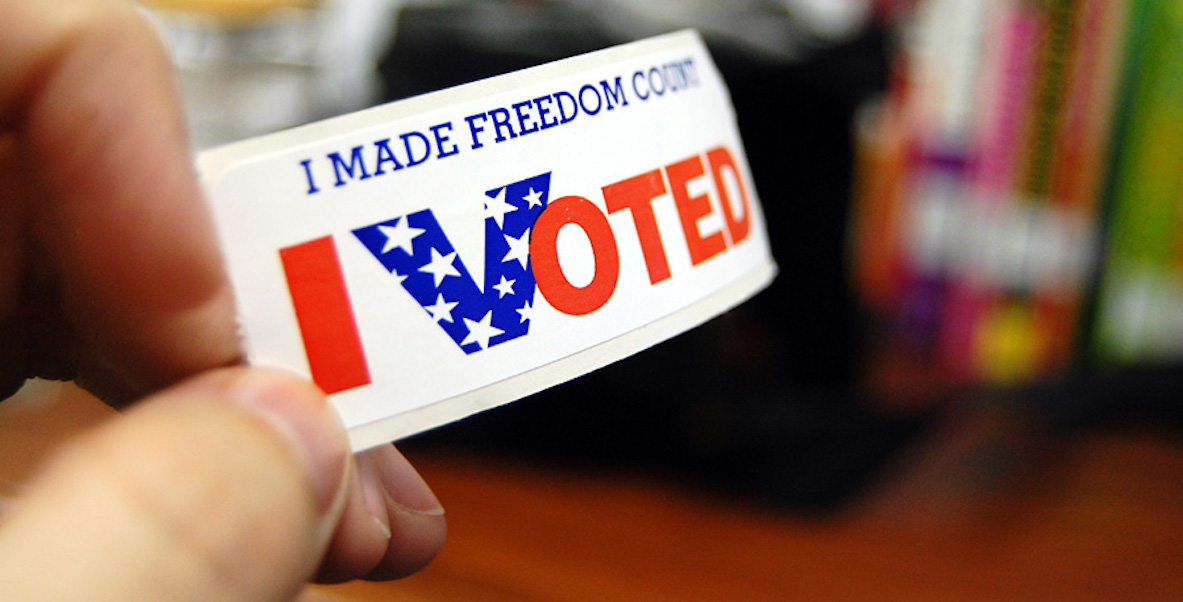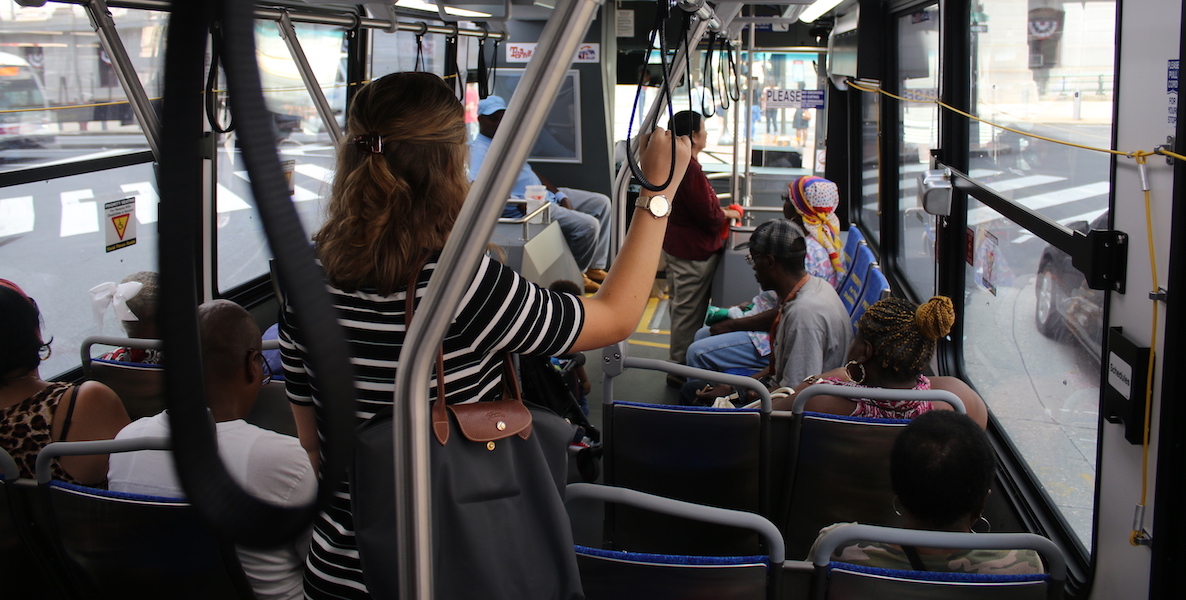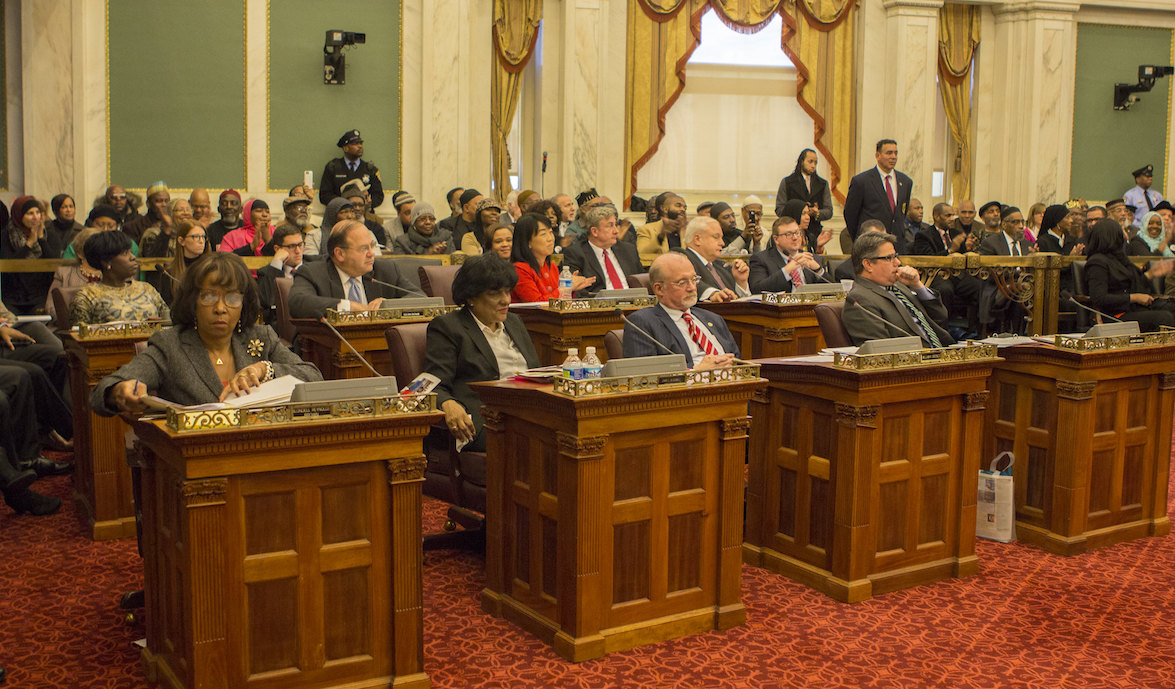City Council met for its final meeting of the year on Thursday, and passed several significant pieces of legislation that had been on the agenda this session.
![]() A few weeks ago we put together a list of the biggest items, noting that any bills that didn’t pass in the final session would need to be introduced anew in the next term. Let’s go back to the list to see what passed, and what will now either disappear or start again from scratch in 2020.
A few weeks ago we put together a list of the biggest items, noting that any bills that didn’t pass in the final session would need to be introduced anew in the next term. Let’s go back to the list to see what passed, and what will now either disappear or start again from scratch in 2020.
Election and Political Reform
None of the big remaining political reform bills advanced this session, but there should be opportunities to revive some of them in the next term. Derek Green’s bill establishing a public financing system for campaigns, and switching to cycle limits instead of annual limits on contributions did not make it over the line, and neither did Allan Domb’s bill setting Council term limits, or David Oh’s bill moving School Board appointments from appointed to elected positions.
Housing and Zoning
The big housing news out of the last session day was Council’s vote to essentially cut the 10-year abatement for property improvements in half, by reducing the abatement’s value by 10 percent each year over 10 years. The bill would only apply to new tax abatements, and would begin to take effect in December 2020. It will be fascinating to see how much of a last-minute rush in building permits there will be to get projects in under the deadline. Are we due for a policy-induced building boom at a time when some people have been warning about a downturn?
Also technically a housing bill, Mark Squilla’s bed bugs bill passed, requiring landlords to pay for bedbug remediation if bugs are discovered in the first year, and requiring tenants and landlords to split the costs thereafter.
Outgoing Councilmember Jannie Blackwell’s zoning remapping bills all passed too, except for one covering Cedar Park, which got pulled after the initial announcement of Blackwell’s final tranche of remapping bills.
The bills included some controversial but positive changes upzoning a couple blocks of Spruce near 46th, and rezoning Good Shepherd Church to allow a proposed apartment conversion project to proceed by-right after local NIMBYs lawyered up to fight a variance request.
![]() A bill from Darrell Clarke and Kenyatta Johnson that passed Thursday seeks to require Community Benefits Agreements for certain high-impact development projects that receive city support or financial assistance.
A bill from Darrell Clarke and Kenyatta Johnson that passed Thursday seeks to require Community Benefits Agreements for certain high-impact development projects that receive city support or financial assistance.
The bill continues to be worryingly broad, with “city support” applying to rezoning, or “high-impact” status including highly subjective conditions like “social” or “aesthetic” impacts on the surrounding community that could introduce a lot more Council discretion than is desirable. At the same time, the bill seems relatively toothless and hard to enforce. The next step is for the Department of Planning and Development to develop the regulations and procedures to implement it.
A few other bills did not advance. The Planning Commission used their power to force a 45-day delay to spike a bill from Brian O’Neill that would ban roof decks and set different lower height limits throughout his Northeast Philly district.
Because the 45-day delay would kick the bill into 2020, and the term ends in January, that kills the bill for this term. O’Neill can still bring it back in the next term and it’ll probably pass since the Planning Commission’s recommendations are, unfortunately, advisory-only.
Planning also spiked a bill from Society Hill that would have made numerous ![]() changes including reducing development rights in the area near the Ritz Five theater and Positano Coast (presumably in response to the by-right approval of 300 apartments at the Sheraton hotel) and exempting the neighborhood from the new historic preservation incentives, which include relief from parking requirements, allowance of Accessory Dwelling Units, and easier residential conversion of industrial and institutional properties.
changes including reducing development rights in the area near the Ritz Five theater and Positano Coast (presumably in response to the by-right approval of 300 apartments at the Sheraton hotel) and exempting the neighborhood from the new historic preservation incentives, which include relief from parking requirements, allowance of Accessory Dwelling Units, and easier residential conversion of industrial and institutional properties.
Department of Planning and Development head Anne Fadullon reportedly panned the bill as “exclusionary” according to sources who attended. This too can come back next term, if Councilmember Mark Squilla will introduce it again over Planning’s objections.
Darrell Clarke and Brian O’Neill’s Zoning Code Review Commission also officially lapsed at the end of the term, after never being staffed and never issuing any recommendations, as it was supposed to do back in October.
Transportation
David Oh’s two transportation-related bills calling for a path to local control of the Philadelphia Parking Authority, and cutting taxes on parking business owners who install electric vehicle charging infrastructure both lapsed.
Environment
Taxes
Allan Domb’s low-income wage tax credit made it out of Council, despite reservations from the Kenney administration based on estimates it could cost as much as $25 million. For context, the city wage tax is currently 3.8712 percent for residents and 3.4481 percent for non-residents and is the largest city revenue source, bringing in around $2 billion per year.
Under the bill, a family of two adults and two children would qualify if they earn up to $34,250 per year, and single parents of two children would qualify if they earn up to $27,750 a year. The legislation would reduce the wage tax rate to 1.5 percent for eligible workers.
The wage tax credit has been an idea kicking around local progressive circles for a long time as a way to do progressive taxation despite the state Constitution’s “uniformity” clause, which has been interpreted to prohibit a progressive tax rate structure.
Domb’s other bill aiming to cut tax delinquency by selling tax liens didn’t go anywhere, but the good news is that, per Councilmember Domb, he then worked with the Revenue Department to solve the problem a different way, and has been wildly successful.
![]() In part because of increased use of rent sequestration targeting landlords of tax-delinquent buildings (in which tenants begin sending rent checks to the City instead of their landlord) and other creative collection methods the Revenue Department employed, they were able to increase current collections from around 89 to 90 percent four years ago to 96.5 percent today, according to Domb. That additional 6.5 percent in annual collections roughly equates to about a $100-million-a-year increase in annual property tax collections. For context, annual real estate taxes amount to about $1.7 billion.
In part because of increased use of rent sequestration targeting landlords of tax-delinquent buildings (in which tenants begin sending rent checks to the City instead of their landlord) and other creative collection methods the Revenue Department employed, they were able to increase current collections from around 89 to 90 percent four years ago to 96.5 percent today, according to Domb. That additional 6.5 percent in annual collections roughly equates to about a $100-million-a-year increase in annual property tax collections. For context, annual real estate taxes amount to about $1.7 billion.
Of the significant tax bills that failed to advance, both came from Councilmember David Oh, who had introduced a bill early in the term calling for faster wage tax reductions, and another incredibly bad bill requiring City Council approval of all new real estate assessments.
All-in-all, it’s been a busy fall session for Philadelphia’s legislature, and with an even more policy-minded Council class coming into office in January, we’re likely to see another prolific session.
Jon Geeting is the director of engagement at Philadelphia 3.0, a political action committee that supports efforts to reform and modernize City Hall. This is part of a series of articles running on both The Citizen and 3.0’s blog.
Corrections: A previous version of this story misstated the status of a transportation bill sponsored by Councilman Mark Squilla. It did not pass. It also left out Squilla’s energy efficiency bill.













